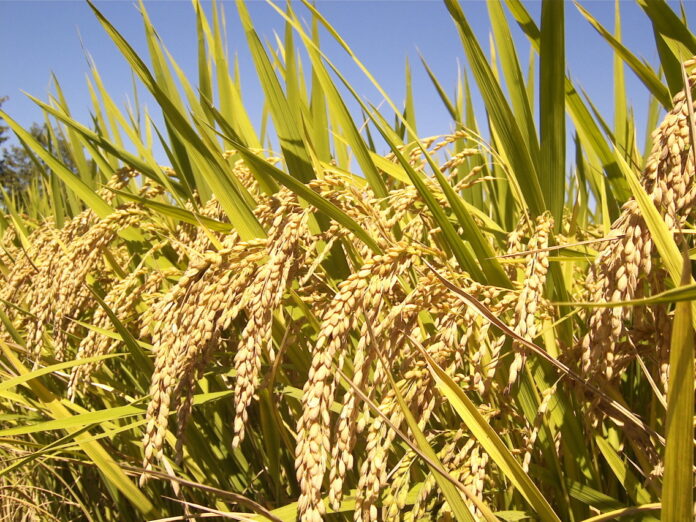Researchers at Heinrich Heine University Düsseldorf and the French National Research Institute for Sustainable Development have achieved a major milestone in the fight against the Rice Yellow Mottle Virus (RYMV), a primary cause of crop losses for small-scale farmers in Africa. This virus, transmitted by beetles and through direct leaf-to-leaf contact, has been responsible for significant rice harvest losses, posing a severe threat to the livelihoods of impoverished farmers in the region.
About Rice Yellow Mottle Virus (RYMV)
Rice Yellow Mottle Virus (RYMV) is a plant pathogenic virus that belongs to the genus Sobemovirus. It was first reported in Kenya in 1966 and has since been detected in many countries in sub-Saharan Africa. The virus has a massive impact on rice crops, causing streaking, mottling, discoloration, and malformation of leaves, as well as the death of infected young plants. Crop losses can be as high as 25–100%. The virus is most commonly transmitted by animals, wind-mediated leaf contact, and irrigation water.
Unveiling the Genetic Arsenal: RYMV1, RYMV2, and RYMV3 – Focus on CPR5.1
The research team employed advanced genome editing techniques to create rice lines that exhibit resistance to RYMV. This breakthrough is a crucial step toward developing locally adapted elite rice varieties capable of withstanding the virus, thereby benefiting small-scale food producers in Africa. The team identified key resistance genes, specifically RYMV1, RYMV2, and RYMV3, with particular emphasis on RYMV2, also known as CPR5.1. This resistance gene was initially found in poor-yielding African rice varieties but required transfer to high-yield Asian rice varieties commonly cultivated in Africa.
Conventional methods of introducing the resistance gene faced challenges due to sterility issues in hybrid descendants. However, the researchers successfully utilized the CRISPR/Cas genome editing method to introduce mutations in the RYMV2 gene in an Asian rice variety, resulting in resistance to the virus. The next phase of the project involves applying the same editing approach to relevant African elite rice varieties, aiming to make them resistant and accessible to small-scale producers.
The international research consortium, known as the “Healthy Crops” project and led by Heinrich Heine University, is dedicated to enhancing crop yields for small-scale producers in Africa and Asia. In addition to the successful development of RYMV resistance, the project has implemented effective strategies against bacterial blight in rice, demonstrating its commitment to addressing various agricultural challenges.
The groundbreaking research findings highlight the pivotal role of targeted genome editing in the development of disease-resistant crops, offering a promising solution to mitigate the devastating impact of the Rice Yellow Mottle Virus on rice production in Africa. The interdisciplinary collaboration within the Healthy Crops project underscores the global effort to provide sustainable solutions for smallholder farmers and enhance food security in vulnerable regions. This achievement marks a significant stride towards creating resilient and thriving agricultural practices in the face of emerging threats.
Conclusion
In conclusion, the successful application of CRISPR genome editing techniques by the international research consortium within the ‘Healthy Crops’ project marks a significant breakthrough in the ongoing battle against the devastating Rice Yellow Mottle Virus. By identifying and harnessing key resistance genes, particularly RYMV2 (CPR5.1), the research team has paved the way for the development of resilient, disease-resistant rice varieties tailored to the needs of small-scale farmers in Africa. This accomplishment not only addresses the immediate threat posed by the virus but also underscores the global commitment to sustainable agriculture, offering hope for enhanced food security and thriving farming practices in vulnerable regions. The collaborative efforts exemplify the power of scientific innovation in creating transformative solutions for the challenges faced by agriculture, reinforcing the path towards a more resilient and secure future for farmers and their communities.
















 The African Research (AR) Index is a comprehensive scholarly directory and database focused explicitly on journal publishers that publish and disseminate African research.
The African Research (AR) Index is a comprehensive scholarly directory and database focused explicitly on journal publishers that publish and disseminate African research.

